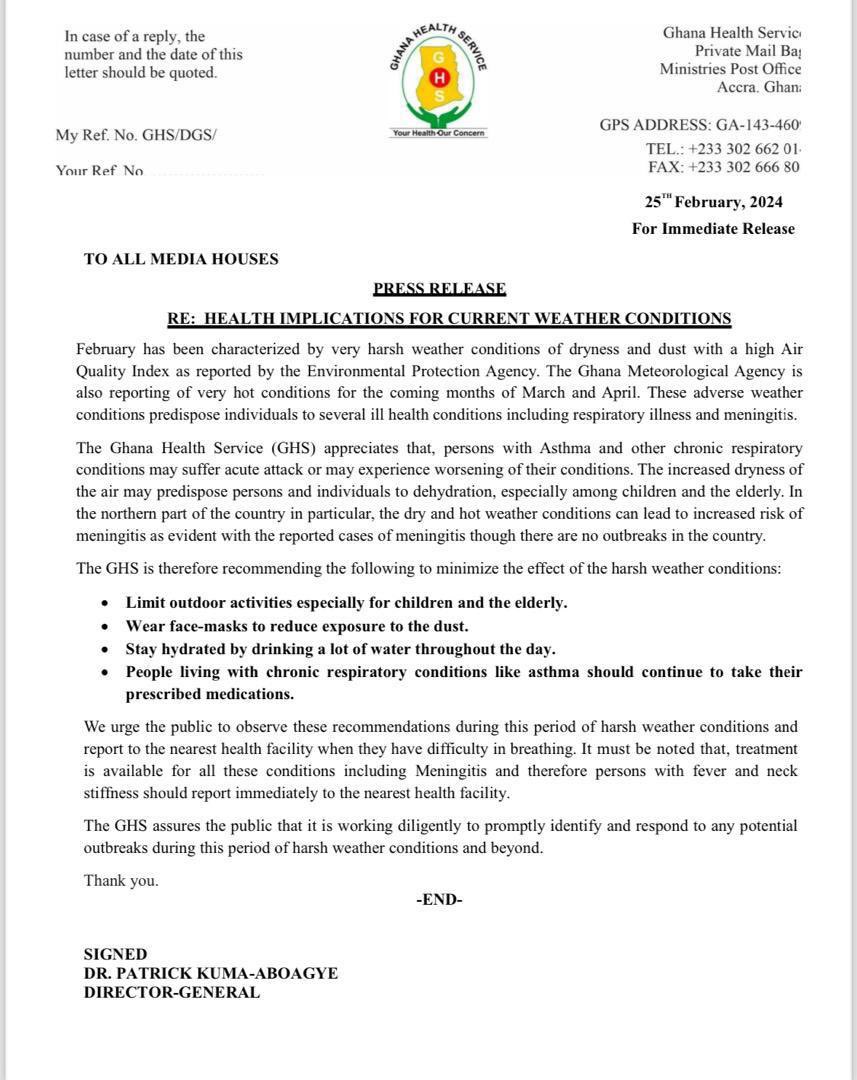The Ghana Health Service (GHS) has raised concerns over the prevailing harsh weather conditions.
The month of February has witnessed extremely harsh weather conditions, with dryness and dust contributing to a high Air Quality Index, as reported by the Environmental Protection Agency.
The Ghana Meteorological Agency therefore forecasts very hot conditions for the upcoming months of March and April.
In a press release signed by the Director-General dated February 25, the GHS recommended some measures that could help minimize the effect of the harsh weather conditions.
The measures are:
- Limit outdoor activities especially for children and the elderly.
- Wear face-masks to reduce exposure to the dust.
- Stay hydrated by drinking a lot of water throughout the day.
- People living with chronic respiratory conditions like asthma should continue to take their prescribed medications.
According to the Health Service, “February has been characterized by very harsh weather conditions of dryness and dust with a high Air Quality Index as reported by the Environmental Protection Agency. The Ghana Meteorological Agency is also reporting of very hot conditions for the coming months of March and April. These adverse weather conditions predispose individuals to several ill health conditions including respiratory illness and meningitis.”
“The Ghana Health Service (GHS) appreciates that, persons with Asthma and other chronic respiratory conditions may suffer acute attack or may experience worsening of their conditions. The increased dryness of the air may predispose persons and individuals to dehydration, especially among children and the elderly,” a portion of the press release reads.
It said, “In the northern part of the country in particular, the dry and hot weather conditions can lead to increased risk of meningitis as evident with the reported cases of meningitis though there are no outbreaks in the country.”






